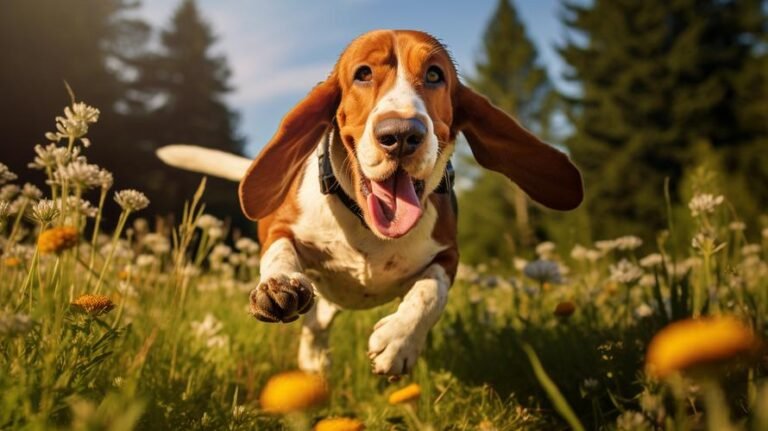Did you know the digestion system of dogs is much different than that of humans? Because of this, certain foods that are perfectly safe for humans can pose a serious health risk to our canine companions. Grains, for instance, are a staple in many human diets, but they’re not always the best choice for our dogs, particularly for those adorable Basset Hounds with their sagging, droopy ears and melancholic eyes.
So, why should you think twice about feeding grains to your lovable Basset Hound?
Firstly, let’s dive into the specifics of a dog’s digestive system. Canines are primarily carnivores. This means that their digestive systems are optimized to break down and absorb nutrients from meat-based proteins. Grains, on the other hand, are a form of carbohydrates. Although dogs can digest some carbohydrates, their bodies don’t break them down as efficiently or completely as meats.
Now, if you’re wondering, “What does this mean for my Basset Hound?” The answer is simple. Feeding your Basset Hound a diet high in grains could not only deprive them of essential nutrients such as high-quality proteins but also result in longer-term health issues like obesity and pancreatic disorders. And let’s not forget, your Basset Hound might simply not like the taste of that grain-infused kibble!
Let’s turn the page towards another hot topic of the debate: Gluten. Found in grains such as wheat, rye, and barley, gluten can be a controversial substance for dogs. While some furry friends may tolerate gluten quite well, it’s common for others to develop allergies or sensitivities. Symptoms might include problematic skin conditions, gastrointestinal upset, and even inexplicable changes in behavior. Basset Hounds, with their predisposition to certain skin and digestive troubles, can be especially vulnerable.
However, before you toss out that bag of grain-infused kibble in your kitchen, let’s not forget that grains are not universally harmful. Certain whole grains, for instance, brown rice, quinoa, and oats, can indeed form part of a balanced and nutritious diet for many dogs. They provide energy, assist in digestion, and contribute to a slower metabolic release of sugars, thus helping to regulate blood sugar levels.
Now you must be thinking, “Okay, this sounds like a lot of information to digest. How do I make the best decision for my Basset Hound?” The trick lies in understanding the needs and preferences of your own dog.
Pay attention to their eating habits, energy levels, and any changes in their coat or skin. If you suspect that your Basset Hound might be reacting poorly to grains, experiment with a grain-free diet for a short period and observe any changes in their overall health and wellbeing.
In conclusion, while it’s tempting to follow one-size-fits-all dietary trends, remember to approach your Basset Hound’s diet as unique to them. There’s no absolute ‘yes’ or ‘no’ to whether Basset Hounds should eat grains – the answer lies in the individual dog’s health, appetite, and tolerance. It’s always a smart idea to consult your vet before making any drastic changes in your furry friend’s diet. After all, a well-nourished Basset Hound is a happy Basset Hound! So here’s to making your pup’s mealtimes not just healthy, but their favorite time of the day too!



